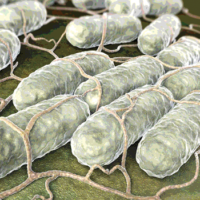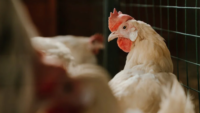Marler Clark LLP filed a petition on behalf of several individuals and consumer groups on January 18, 2020, asking the U.S. Department of Agriculture Food Safety and Inspection Service (USDA FSIS) to issue an interpretive rule declaring 31 Salmonella strains as per se adulterants in meat and poultry products. These strains include four antibiotic-resistant serovars—Salmonella enterica Hadar, Heidelberg, Newport, and Typhimurium—as well as Dublin, Enteritidis, and Infantis. In support of its request, the petition relies heavily on its interpretation of precedent established following the 1993 Escherichia coli outbreak, when USDA declared E. coli O157:H7 a per se adulterant in raw ground beef through interpretive rulemaking.
The petition argues that FSIS has the authority to declare the 31 Salmonella serovars per se adulterants through interpretive rulemaking because the proposed rule would meet the criteria set out in Texas Food Industry Ass’n v. Espy, 870 F. Supp. 143, 147-48 (W.D. Tex. 1994). More specifically, the petition argues that because the Federal Meat Inspection Act does not require USDA to engage in substantive rulemaking to determine whether a particular substance is an adulterant, the agency has “the discretion to proceed through case-by-case adjudication and interpretive orders, rather than through the rulemaking process.” Espy, 870 F. Supp. at 147. The petition also argues that the issuance of such a rule would not be arbitrary or capricious or not in accordance with law.
The petition’s arguments hinge largely on the applicability of the Espy precedent to current issues involving Salmonella, notwithstanding circumstances unique to the processing and consumption of ground beef and related products that were recognized at that time. It also relies heavily on the assertion that Salmonella should not be classified as a naturally occurring substance in finished products, despite longstanding agency policy and case law to the contrary. For example, in Seabrook Intern. Foods, Inc. v. Harris, 501 F. Supp. 1086, 1092 (1980), the U.S. District Court for the District of Columbia noted that the U.S. Food and Drug Administration has made a distinction between Salmonella occurring in poultry and that occurring in raw shrimp because the former is “inherent” in poultry. Importantly, numerous courts have recognized that Salmonella “occurs naturally in chicken and that raw chicken can only be safely consumed after it is cooked at high temperatures.” [See, e.g., Starr Surplus Lines Insurance Company v. Mountaire Farms Inc., No. 2:18-CV-00067-JDL, 2018 WL 3676839, at *3 (D. Me. Aug. 2, 2018), aff’d, 920 F.3d 111 (1st Cir. 2019) (emphasis added)].
As the case law suggests, the Espy precedent is far from dispositive, and the petitioners’ assumptions regarding what is and is not a naturally occurring substance appear questionable at best. This still leaves room for an independent assessment of the core public policy questions at issue here. At that broader policy level, the central questions for all interested parties to evaluate are, first, what public health benefits would be achieved if the relief requested here were granted? And, second, what would the practical consequences be throughout the entire food chain? If USDA approves the petition and takes steps to introduce changes, it has the potential to grant the agency with further powers to recall products, target certain operations, and hold meat companies legally accountable for Salmonella contamination.
Hopefully these issues will become clearer on the public record in the wake of this submission.
We will further discuss the significance of this petition and what the next steps could look like in the wake of the filing. Additionally, we will examine the compliance implications if USDA moves to introduce regulatory changes to the treatment and oversight of Salmonella in the meat industry in an upcoming issue of Food Safety Magazine.
Robert Hibbert, Esq., is a partner and Maria Kalousi-Tatum, Esq., is an associate at the Morgan Lewis law firm in Washington, DC.




